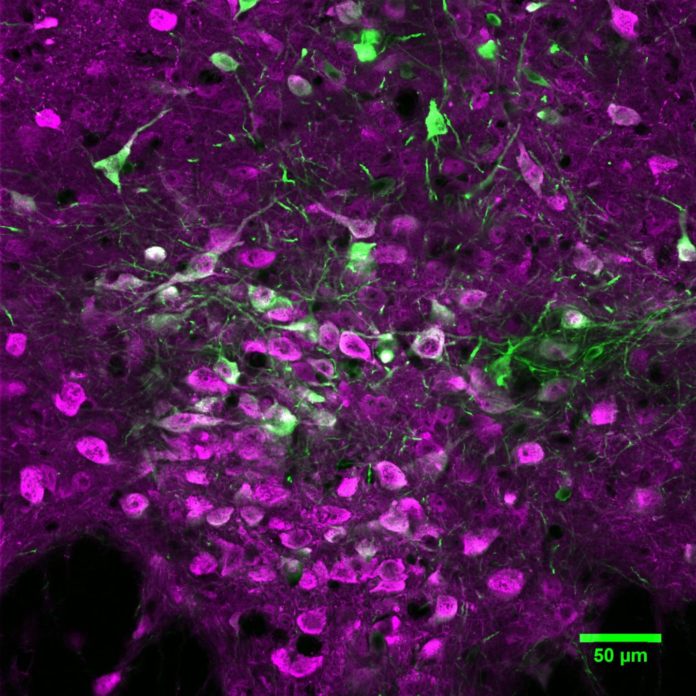Serotonin is one of the principal chemicals that nerve cells use to communicate with each other, and how it impacts behavior is still not clear. For quite a while, neuroscientists have been determined to developing an incorporated hypothesis of what serotonin really does in the normal brain.
Now, scientists at the Champalimaud Centre for the Unknown (CCU), in Portugal, and the University College London (UCL), in the UK, has uncovered a previously unknown effect of serotonin on learning. They discovered that the serotonin enhances the speed of learning.
The study was conducted on mice. When serotonin neurons were activated artificially, using light, it made mice quicker to adapt their behavior in a situation that required such flexibility. That is, they gave more weight to new information and therefore changed their minds more rapidly when these neurons were active.
Scientists used a newly developed mathematical model to get better insights on medical enigma: why so-called “selective serotonin reuptake inhibitors”, or SSRIs – a class of antidepressants that are thought to act by increasing brain levels of circulating serotonin -, are more effective in combination with behavioral therapies, based on the reinforced learning of behavioral strategies to stave off depressive symptoms.
During the study, mice had to perform a learning task, where they had to find water. They primarily were put in a chamber where they needed to jab either a water-container on their left side or one to their right side – which, with a specific likelihood, would then dispense water, or not.
Scientists discovered that the amount of time the mice held up between trails (endeavors to discover water) was variable: possibly they instantly attempted once more, jabbing on one of the water-dispensers, or they hold up longer before making another endeavor. It was this inconstancy that enabled the group to uncover the likely existence of a novel impact of serotonin on the animal’s decision-making.
Whatever the case, the team found that, depending on the length of the interval between trials, the mice adopted one of two different decision-making strategies to maximize their chances of reward (obtaining water).
Specifically, when the interval between trials was short, the mathematical model that best predicted the animals’ next choice was based almost completely on the outcome (water or no water) of the immediately preceding trial (namely, they poked the same water-dispenser again; if that failed to provide water, they would next switch to the alternative water-dispenser, a strategy known as “win-stay-lose-switch”).
It recommends that when the interval between two preliminaries was short, the mice were, for the most part, depending on their “working memory” to make their next decision. It’s this sort of memory that enables us to retain a phone number for a short time- and then forget it if we don’t rehash it to ourselves again and again.
Then again, when the interval between two continuous trails kept going over seven seconds, the model that best anticipated the mice’s next decision recommended that the mice were utilizing the accumulation of a several experiences of reward to direct their best course of action – at the end of the day, their long-haul memory “kicked in”.
Using a technique called optogenetics, scientists then stimulated the serotonin-producing neurons in the animals’ brain with laser light. Through this, they got access to look for the effects of higher levels of serotonin on their foraging behavior.
Something surprising then occurred. When they pooled together all the trials in their calculations, without taking into account the duration of the preceding interval, the scientists found no significant effect of their serotonin manipulation on the behavior. It was only when they took into account the above mentioned different decision-making strategies that they were able to extract from the data an increase in the animals’ rates of learning. Stimulation of serotonin-producing neurons boosted the effectiveness of learning from the history of past rewards, but this only affected the choices made after long intervals.
CCU co-author Masayoshi Murakami said, “Serotonin is always enhancing learning from reward, but this effect is only apparent on a subset of the animals’ choices.
Kiyohito Iigaya at UCL said, “To our surprise, we found that animals’ choice behavior was generated from two distinctive decision systems. On most trials, choice was driven by a ‘fast system’, where the animals followed a win-stay-lose-switch strategy. But on a small number of the trials, we found that this simple strategy didn’t explain the animals’ choices at all. On these trials, we instead found that animals followed their ‘slow system’, in which it was the reward history over many trials, and not only the most recent trials, that affected their choices. Moreover, serotonin affected only these latter choices, in which the animal was following the slow system.”
As to the role of SSRIs in treating psychiatric disorders like depression, the authors conclude: “Our results suggest that serotonin boosts [brain] plasticity by influencing the rate of learning. This resonates, for instance, with the fact that treatment with an SSRI can be more effective when combined with so-called cognitive behavioral therapy, which encourages the breaking of habits in patients.”
Their results are published in the June 26 2018 edition of the journal Nature Communications.
